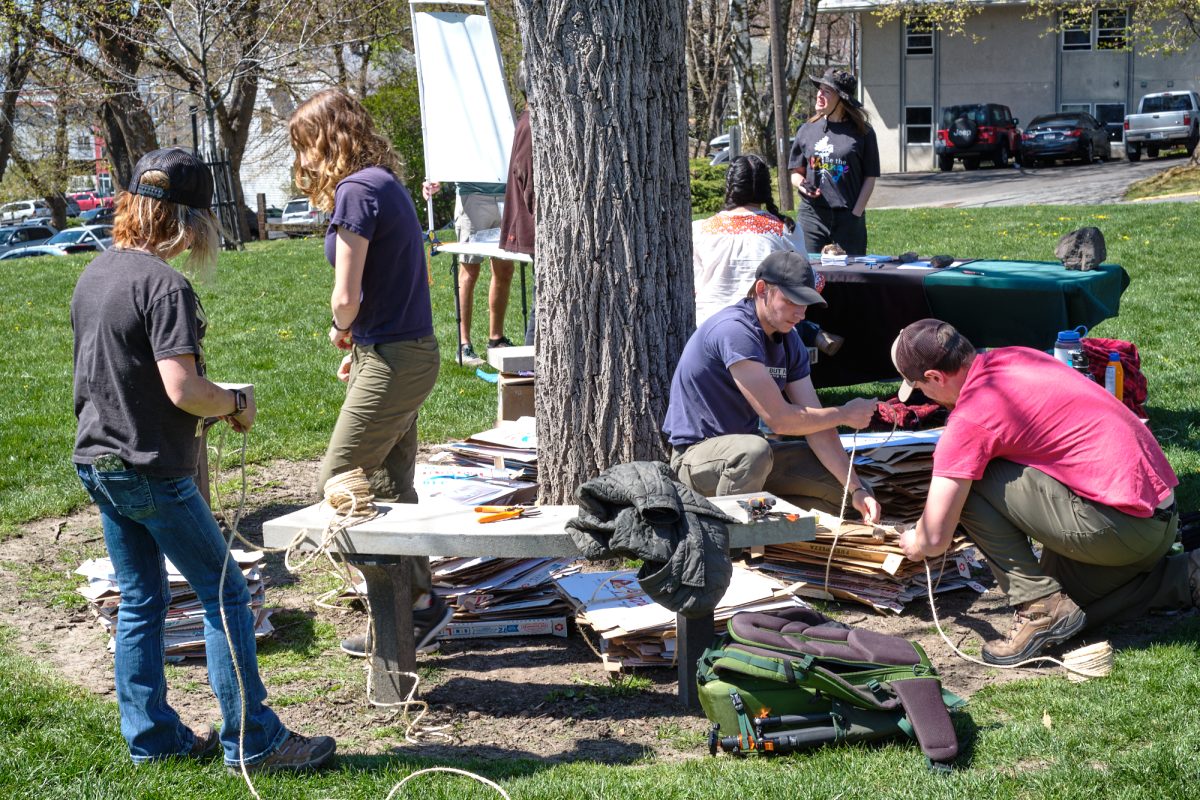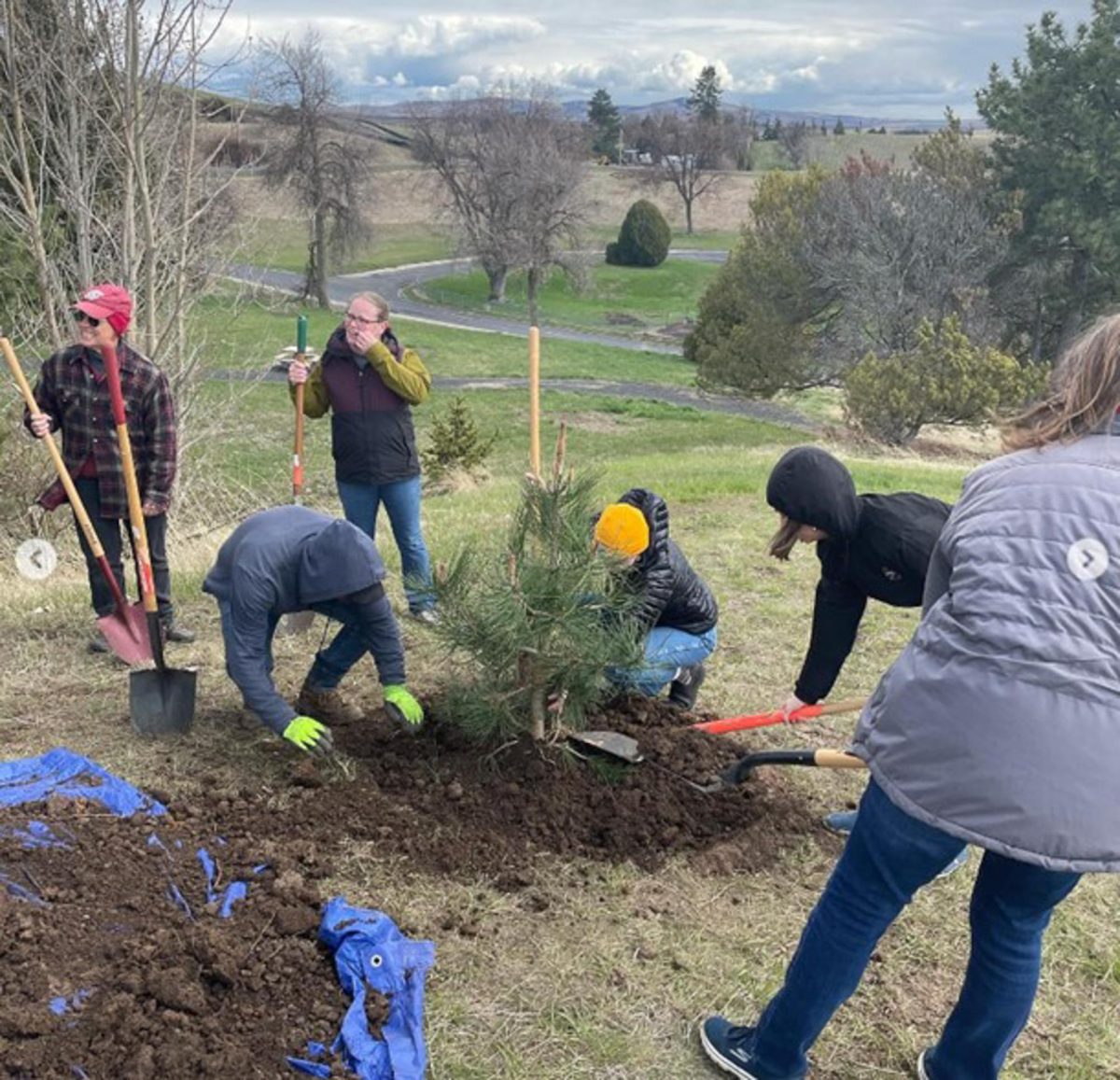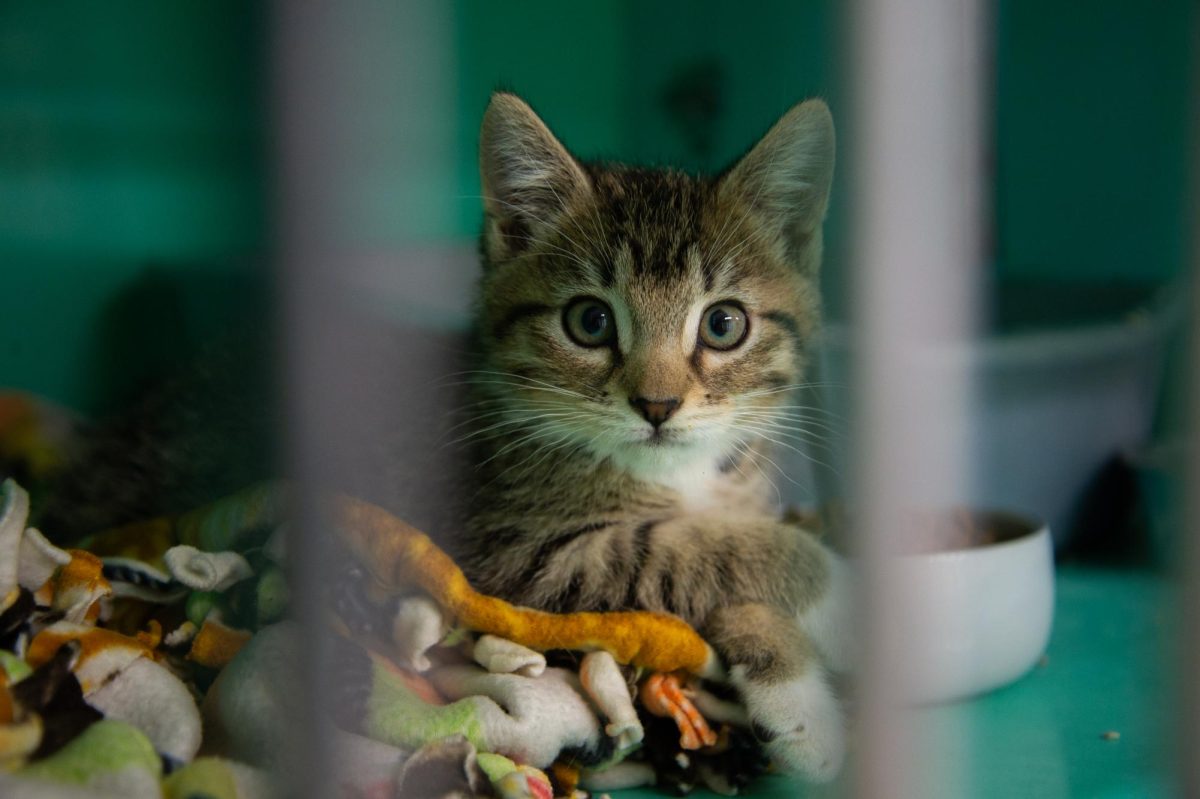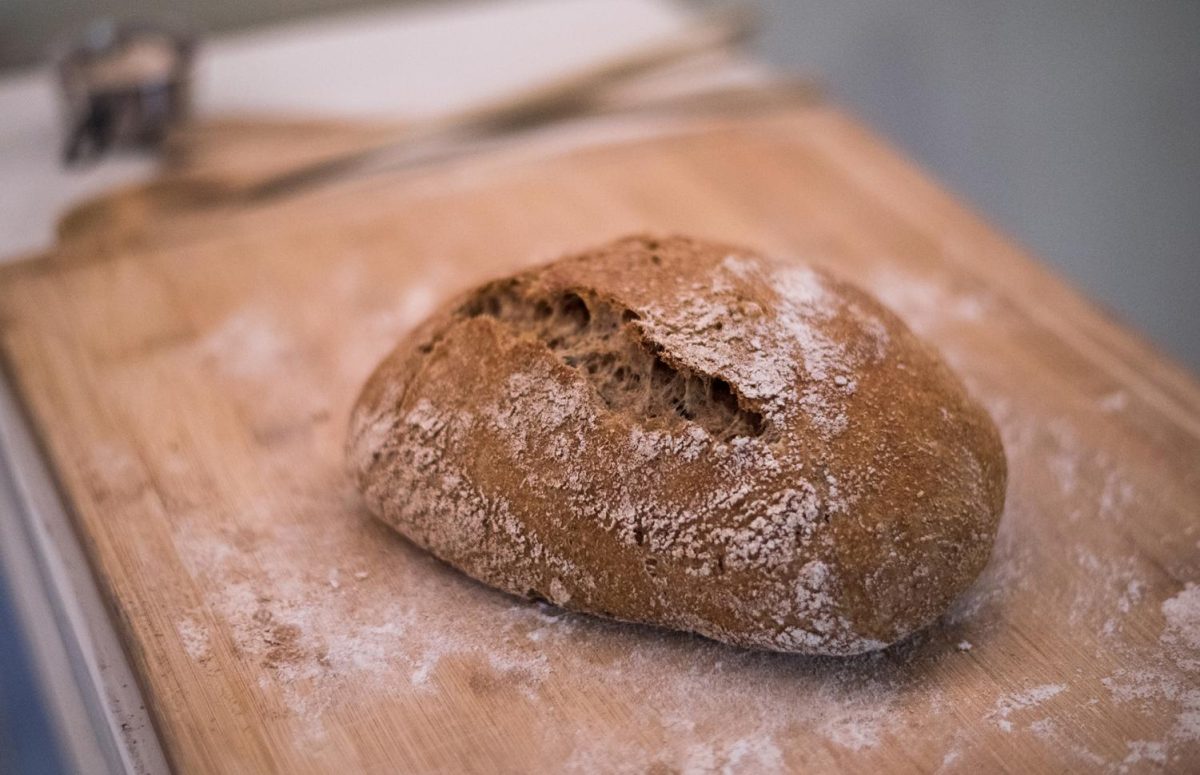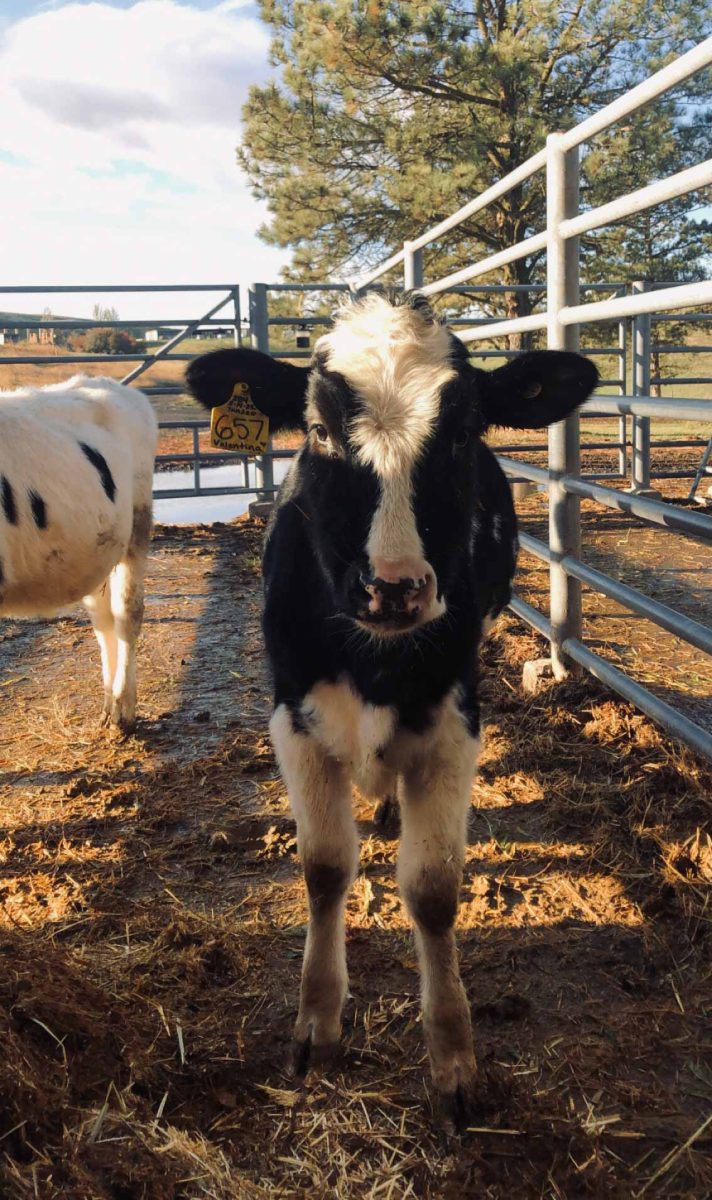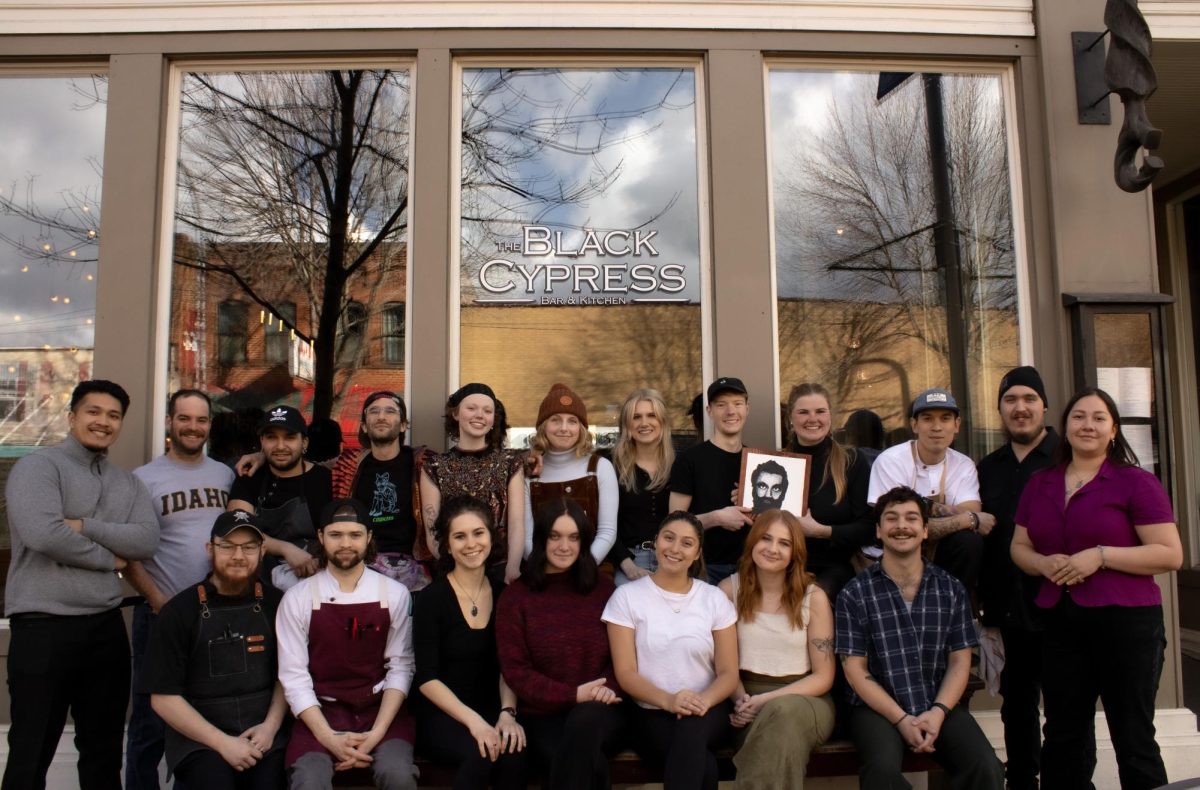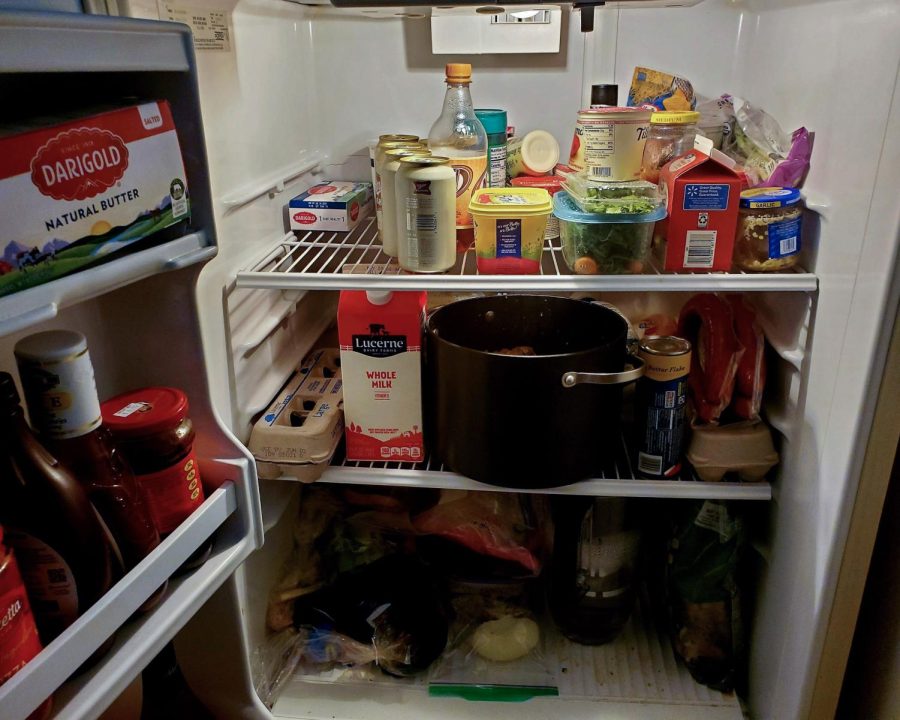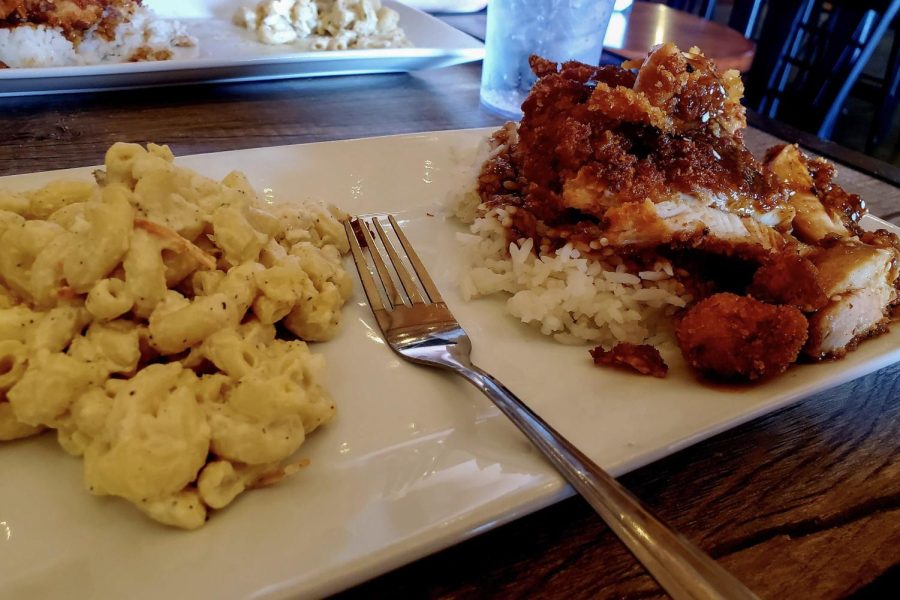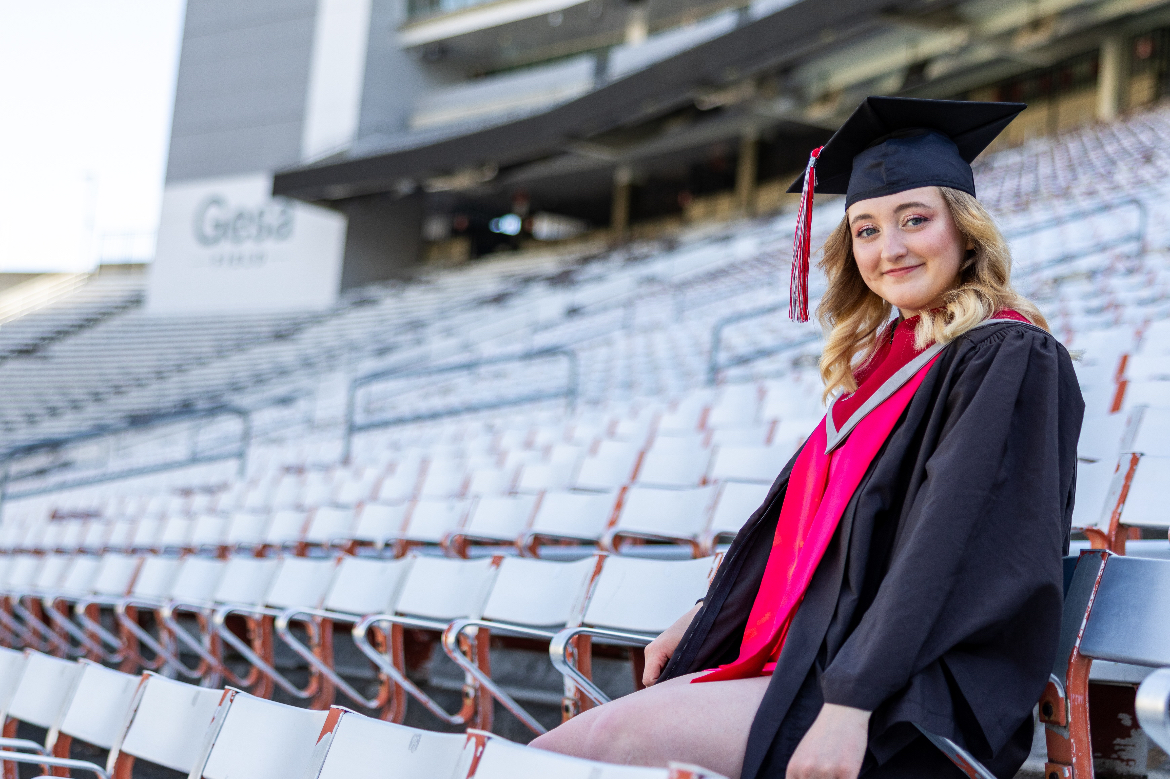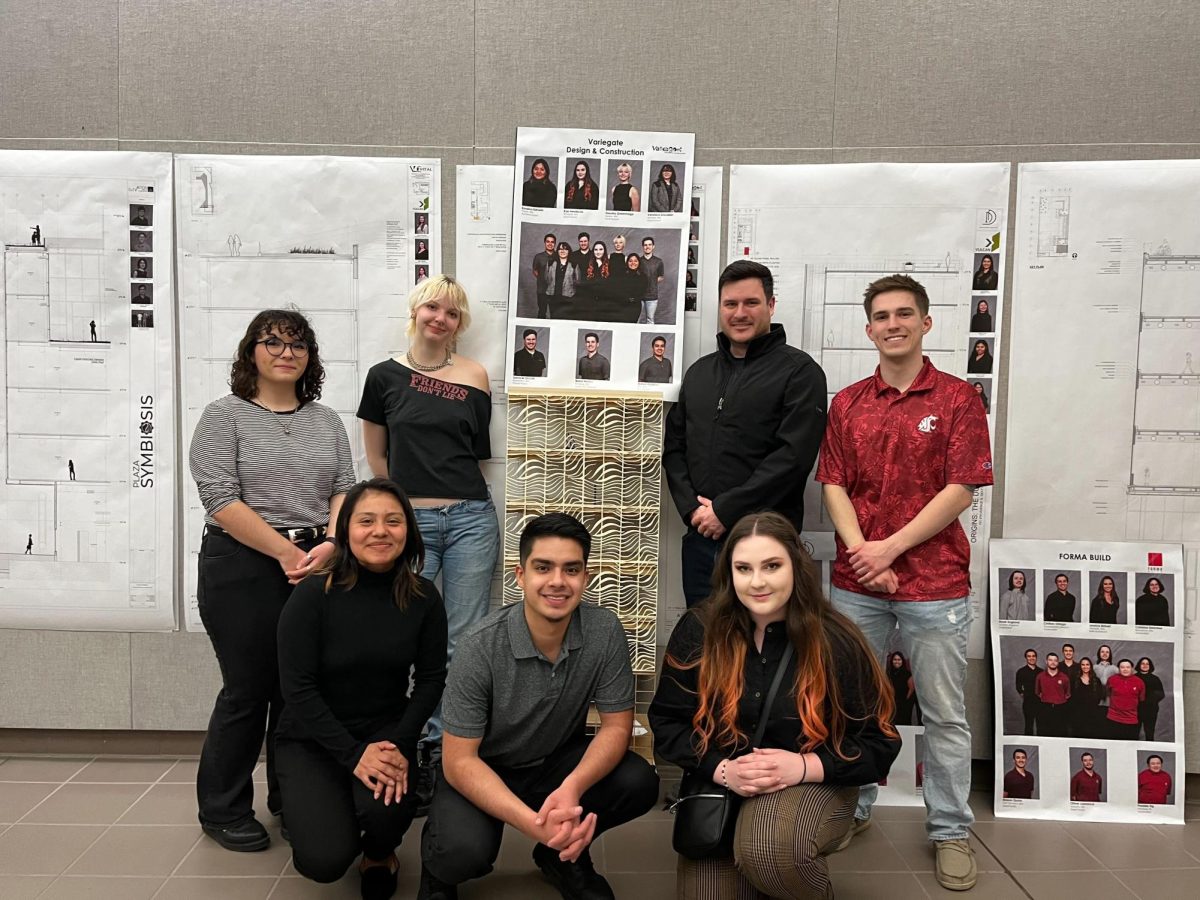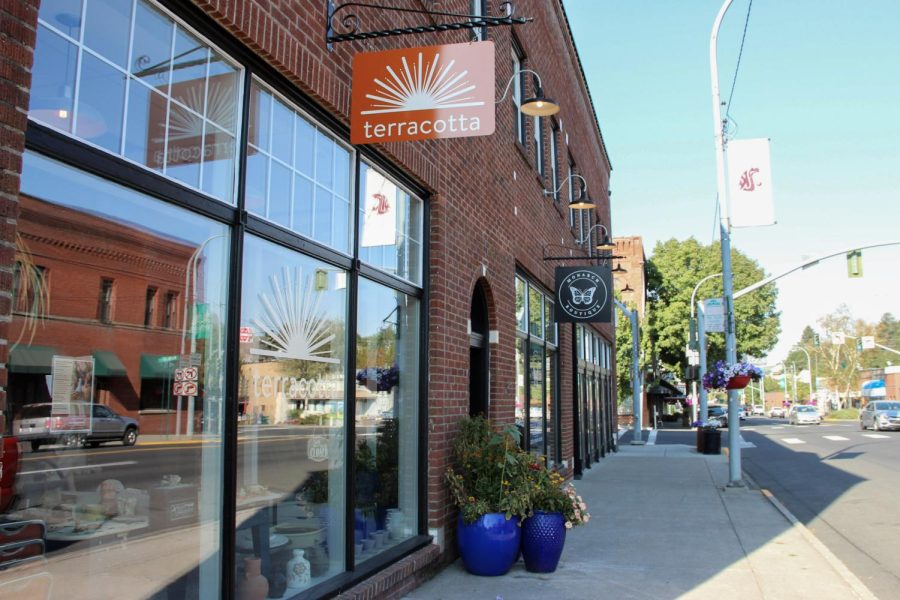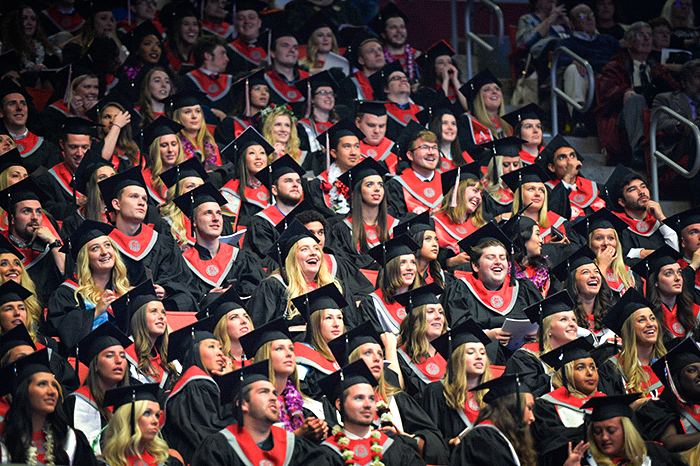Non-recyclable pizza boxes became recyclable at Pizza for the Planet, hosted by the nonprofit The Phoenix Conservancy April 20 at Ruby Street Park.
At the event, attendees burned pizza boxes and other biodegradable materials in a Kon-Tiki-style biochar kiln to make biochar.
“You can turn a lot of stuff like pizza boxes, grass and invasive species into biochar,” said Chris Duke, The Phoenix Conservancy executive director.
Biochar is a material that sequesters carbon from organic waste and is created through a process called pyrolysis. Materials like pizza boxes are burned at very high temperatures with very low oxygen, Duke said.
Once the process is complete, Duke said the stable carbon compounds can remain stable for hundreds of years.
“It’s a good soil amendment that we can use at our restoration sites,” said Shannon Collins, Palouse Prairie project manager at The Phoenix Conservancy. “We use it at some spots in Conservation Park and then we’ve also had people use it in their landscaping on private property.”
Biochar is great for areas with steep slopes or areas with poor soil quality, Collins said. One of the great qualities of biochar is the variety of ways its beneficial properties can be applied.
The nonprofit uses biochar, which Duke said can also function as a soil ameliorant, to correct soil that is too acidic or compacted.
“Biochar also acts like a small sponge that holds onto water and nutrients,” Duke said.
The Phoenix Conservancy hosted the event in collaboration with the Center for Civic Engagement, Associated Students of WSU and College Hill Association.
The frustration of being unable to recycle cardboard pizza boxes partly inspired the idea of Pizza for the Planet, Collins said.
“We loved eating pizza, but we hated that we couldn’t recycle the boxes,” Collins said. “We already had our biochar program going on where we would take weed waste and make it into biochar, so we decided to do an event where we just had a bunch of people bring pizza boxes and then we just repurpose all their boxes.”
Most pizza boxes made of cardboard go to landfills where it contributes to carbon dioxide and methane production. Turning pizza boxes into biochar is an alternative that not only helps keep pizza boxes out of the landfill, but also offers an alternative solution by making a substance with beneficial properties for soil, Collins said.
The nonprofit collected 330 pizza boxes in total at the event.
“I wanted to help out and make a difference here,” said Derek Carlos, Pullman resident and Pizza for the Planet attendee. “We had a lot of pizza boxes left over and thought it’d be a good idea to give to a friend for this event, especially on Earth Day.”





